 Tips, tools, tricks to help rookies reap rewards
Tips, tools, tricks to help rookies reap rewards
Whether you thumb through a consumer magazine as an enthusiast or through a business or trade magazine as an executive, leader, manager or staffer, you likely will find at least one or two stories per year that provide expert tips on how to do something more creatively, effectively, efficiently, successfully, sustainably. You get the idea.
Leaders & Luminaries offers its own entry on tips for rookie executives in healthcare supply chain management by those already in the trenches — from Bellwether Hall of Famers to Ammer Honorees to Future Famers and Sponsors from provider and supplier organizations.
So, if you're new to the organization or new to the profession, here are some tips, tools and tricks of the trade to help you move your abilities, actions, attitudes and outcomes forward.
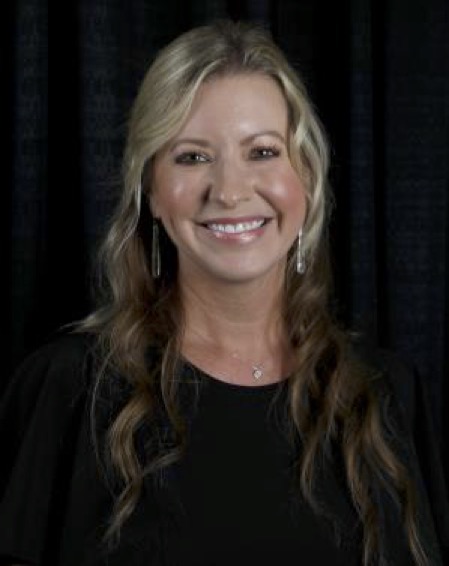
"Always take a seat at the table — even if the meeting has nothing to do with you or your area of expertise. Other executives, leaders and vendors will size you up the second you enter the room, so don't sit back in a corner! If it's your meeting, be at the head of the table and command the room. When it comes to the meeting itself, be willing to jump into difficult conversations and don't back down from criticism. Instead, listen with an open mind and collect information, taking time to digest what the other person is saying before you respond."
Rachel Anderson, Future Famers Class of 2023, Vice President, Supply Chain, DCH Health, Tuscaloosa, AL
"Don't hesitate to step outside your lane to gain a broader understanding of operations across the org. Observing patient engagement within a clinic, or prior to a surgical procedure through post procedure discharge, helps to generate end-to-end awareness for how supply chain influences patient experience and outcomes across their journey."
Kate Polczynski, MBA, CMRP, Future Famers Class of 2016, Vice President, Enterprise Supply Chain, Geisinger, Danville, PA
"Network early and often, meet as many people as possible inside — and outside — of your field. Relationships are a key to success in both personal and professional life."
Ryan Burke, Future Famers Class of 2022, Vice President, Strategic Sourcing, Pandion Optimization Alliance, Fairport, NY

"Understand the history of the organization and respect the knowledge and experience of those who have been around for a long time before bringing ideas for change to the table. By learning the history of the organization, you gain valuable insights into how it has evolved over time. This includes understanding past decisions, challenges faced, and successes achieved. This historical context provides a foundation for understanding the current state of the organization and the factors that have influenced its present situation. It allows you to identify patterns, trends, and opportunities for improvement. Respect the experience of individuals who have been with the organization for a long time have accumulated a wealth of knowledge and experience. They have witnessed the organization's journey, and their insights can provide valuable perspectives. Respecting their experience means acknowledging their expertise and understanding that they possess valuable institutional knowledge. Engaging in active listening and asking questions demonstrates your respect for their insights and helps build trust and rapport with colleagues.
"Before implementing changes or proposing new ideas, it's important to have a complete picture of how the organization arrived at its current state. This understanding allows you to identify potential challenges, anticipate resistance, and develop solutions that address the organization's unique context. By involving stakeholders and actively listening to their perspectives, you can foster a collaborative decision-making process that incorporates the wisdom of the past while driving positive change for the future.
"Building a foundation of understanding and respect is essential when introducing change. By taking the time to learn the organization's history and engage with long-standing employees, you demonstrate that you value their contributions and perspectives. This fosters an environment of trust and open communication, where ideas can be shared and considered with mutual respect. It also helps ensure that proposed changes align with the organization's values, goals, and vision."
Jessica Hurd, Future Famers Class of 2019, Senior Director, Spend Management, Vizient Inc., Irving, TX
"Really take time to understand how healthcare finance works, what drives your margin, how you get paid. Also take time to understand the key operational challenges of the organization. When you understand the key drivers that move the business you can appropriately think about the supply chain strategies to prioritize to impact the business in a meaningful way. Also, make sure you have a good team!"
Eric Tritch, Future Famers Class of 2015, Senior Vice President, Supply Chain & Support Services, and Chief Supply Chain Officer, UChicago Medicine
"Developing and leading a high-performing Supply Chain does not happen in a silo. The importance of a clinically integrated supply chain cannot be overemphasized. To achieve a clinically integrated supply chain you must:
- Engage with your end-users and stakeholders constantly.
- Utilize evidence and data to drive conversations.
- Make decisions at the betterment of your patients, and the organization.
"Each culture will have their own way of forming this. There is no foolproof concept. The important piece is you engage with the right people to build what is right for your organization."
Angie Bruns, MHA, Future Famers Class of 2024, Senior Director, Spend Management and Administration, The University of Kansas Health System, Kansas City, KS
"In healthcare supply chain, your job is to understand where your health org wants to go and how your department fits into it. Look at every KPI your organization has and figure out how your operation helps the system get there. That's it."
Nate Mickish, Future Famers Class of 2015, Vice President, Strategic Sourcing, Texas Health Resources, and President, OnHand
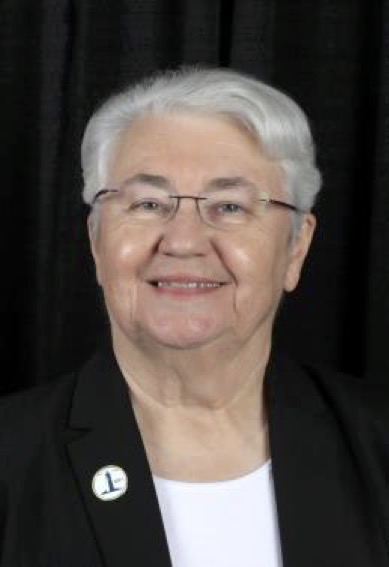
"Understand how your organization is functioning today, look at gaps compared to leading practice metrics and develop your road map. The term organization has two definitions: One refers to the hospital or health system, types of patient care, quality, safety, outcomes all benchmarked to similar organizations, and two refers to the supply chain management sector you are newly responsible for. Are they complementary or out of sync?"
Barbara Strain, CVAHP, Bellwether Class of 2021, Board Chairman, Bellwether League Foundation, and Principal, Barbara Strain Consulting LLC, Charlottesville, VA
"Remember why you got into this industry. Take the time to connect with your staff and connect with your purpose on a regular basis. When I see how our work changes and saves lives, it grounds me in how important we are to our organization and to our community."
Jack Koczela, Future Famers Class of 2020, Director, Sourcing & Transformation, Supply Chain, Froedtert ThedaCare Health, Milwaukee, WI
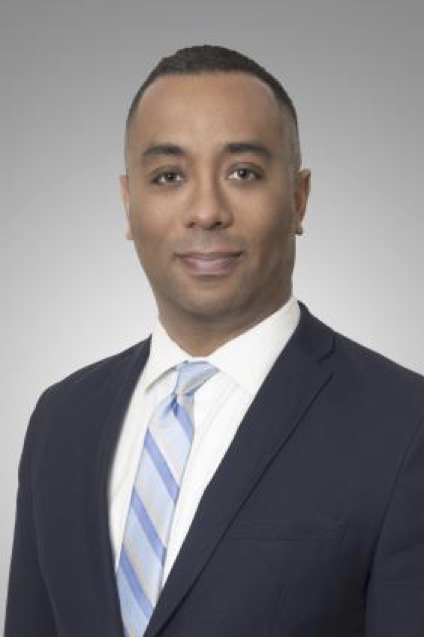
"By focusing on building trust, a rookie executive can establish credibility, demonstrate integrity, and create a positive working environment where stakeholders feel valued and respected. Trust also enhances transparency, encourages open communication, and fosters a sense of teamwork and mutual support within the supply chain ecosystem. "Moreover, in the fast-paced and high-pressure environment of healthcare supply chain management, trust enables executives to navigate challenges, resolve conflicts, and make informed decisions with the confidence that they have the support and cooperation of their colleagues and partners. Ultimately, by prioritizing trust-building efforts, rookie executives can lay a strong foundation for long-term success and effective leadership within the healthcare supply chain industry.
"The Speed of Trust by Stephen M.R. Covey is a valuable guide for building more impactful teams, emphasizing the importance of trust in relationships and its impact on organizational effectiveness. Covey's approach focuses on how trust can significantly influence the speed at which teams collaborate, make decisions, and achieve results. Here are a few key reasons why I recommend The Speed of Trust to help in building impactful teams:
- Foundation of Relationships: Trust serves as the foundation of strong, cohesive team relationships. By cultivating trust within a team, members can collaborate more effectively, communicate openly, and support each other in achieving shared goals.
- Improved Communication: Trust enhances communication among team members, fostering transparency, honesty, and active listening. When team members trust one another, they are more likely to share ideas, provide feedback, and engage in constructive dialogue.
- Increased Productivity: Trust accelerates decision-making processes and enables teams to work more efficiently. When trust is established, teams can focus on tasks at hand without being weighed down by doubts or conflicts.
- Enhanced Collaboration: Trust encourages teamwork, collaboration, and innovation within a team. When team members trust each other's intentions and capabilities, they are more willing to take risks, explore new ideas, and work together towards achieving common objectives.
- Positive Organizational Culture: Building a culture of trust within a team fosters a positive work environment where individuals feel valued, respected, and empowered. This, in turn, leads to higher employee engagement, job satisfaction, and overall team performance.
"I have lived by 3 rules of thumb in my professional career when managing/leading teams: COMPETENCY — TRANSPARENCY — EMPATHY.
"Competency, transparency, and empathy are critical qualities in effective leadership acumen. Competency ensures that leaders have the necessary skills and knowledge to make informed decisions and guide their teams successfully. Transparency fosters trust and credibility by being open, honest, and accountable in communication and actions. Empathy allows leaders to understand and connect with their team members, leading to better collaboration, morale, and support. In combination, these traits help leaders build strong relationships, inspire others, and drive organizational success."
Chico Manning, MHA, Future Famers Class of 2024, System Vice President, Enterprise Supply Chain, PIH Health, Whittier, CA
"Build a team around you that brings different perspectives and that has different strengths that align to your weaknesses. No one can know everything; having a team you trust to go to when needed can achieve much more than someone who tries to do it on their own."
Corey Schmidt, CMRP, MBA, Future Famers Class of 2024, Assistant Director, SHS Operations & Spend Management Integration, The University of Kansas Health System, Kansas City, KS
"The top priority should be to focus on Supply Chain's operational effectiveness in ensuring the caregivers have the supplies and services necessary to provide excellent care to their patients."
Jason Hays, Future Famers Class of 2015, System Director, Purchased Services, Bon Secours Mercy Health, Cincinnati
"Tip: Listen and learn from the teammates who have more experience than yourself. Do not discount their ideas and take their lessons learned into consideration for future changes.
"Why: Learn from others so you don't repeat the same mistakes."
Angie Haggard, CEO, RDA Healthcare, Event Sponsor, Oak Ridge, TN
"Business: Make sure you know your customers. For example, chairs of departments and admin leaders of departments; [this] helps leverage relationships with suppliers, know more about the customer than your supplier does.
"Team: Meet everyone on your staff. Share a meal on their shift. This builds teamwork and leverages operational knowledge."
Charlie Miceli, Bellwether Class of 2023, Strategic Advisor for Network Finance, The University of Vermont Health Network, Burlington, VT
"Relationships matter. Cast a broad and deep net to meet people above, below and around you. Invest in the relationships. People are your biggest asset — hire the very best folks you can, let them do their job and clear the hurdles in front of them."
Marisa Farabaugh, Bellwether League Foundation Advisory Council Volunteer, Senior Vice President and Chief Supply Chain Officer, AdventHealth, Bronze Sustaining Sponsor, Altamonte Springs, FL
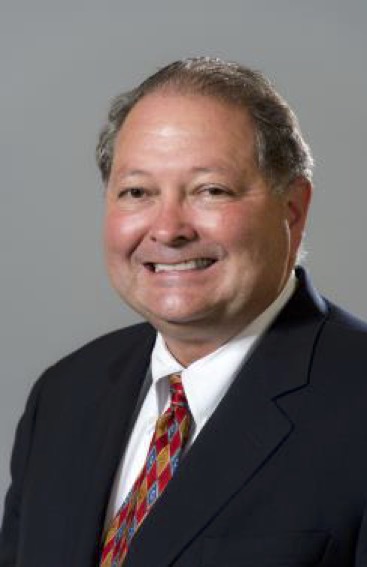
"Adopt a learning attitude. As hospitals continue to face unprecedented financial pressures, Supply Chain management is rapidly evolving. Leaders that breakthrough traditional silos to create value through data-backed collaboration with clinicians and suppliers, who stay abreast of ever-changing environmental global issues, will be most successful, and valued by their organizations. The thirst for knowledge will continue serving them throughout their career."
Rand Ballard, Chief Customer Officer, Vizient Inc., Founding Sustaining Sponsor, Irving, TX
"My one tip for a rookie executive in healthcare supply chain management is to prioritize building strong, collaborative relationships across all levels of the organization and with external partners while practicing courageous decision-making. Healthcare supply chains are complex, involving multiple stakeholders, from clinicians to supply chain and the suppliers they work with. By fostering open communication and trust, leaders can better understand the needs and challenges of each stakeholder, leading to more informed and bold decision-making that drives progress. Courageous decision-making involves not just understanding the data but also having the conviction to make tough calls that prioritize outcomes — whether they be business outcomes, patient outcomes or both. Strong relationships enable quicker problem-solving and innovation, ensuring that even in the face of disruptions, you can confidently lead the team toward delivering high-quality, reliable care."
Tina Vatanka Murphy, President & CEO, GHX, Platinum Sustaining Sponsor, Louisville, CO
"While you may have a healthy and proper view on how to mature a supply chain, take the time to listen to those that you serve in your leadership role, be sensitive to the organizational culture that exists, and allow the supply chain development to come to you versus forcing the changes you desire. Pushing too hard may not have the readiness to adapt and in some cases create more disruption and defeat the intents you desire for advancing your supply chain."
Tom Lubotsky, Bellwether Class of 2022, Vice President, Supply Chain Management, Allina Health, Minneapolis, MN

"My tip centers around building strong relationships. People are essential to what we do. And supply chain as it is not a linear chain but a network of people and activities. Think of our work like a well-tended garden. In a garden, every plant (or stakeholder) needs proper care (right product/right time/right place), attention (understanding), and nutrients (reliability) to thrive. Just as different plants require different levels of sunlight, water, and soil conditions, stakeholders in the supply chain — such as suppliers/partners, clinicians, customers, and your teams—have unique needs and expectations. By nurturing these relationships, you ensure that every part of the supply chain can flourish and contribute to its mission. The interconnected network of strong relationships is even more critical in our industry more than any other industry to ensure resiliency; we are network of people, processes, and activities that all must work in unison."
Amanda Chawla, MHA, FACHE, CMRP, Ammer Honoree Class of 2024, Senior Vice President and Chief Supply Chain Officer, Stanford (CA) Medicine
"My most important tip to a rookie healthcare supply chain manager would be to establish a mentor, an experienced Supply Chain Executive that can offer advice, recommendations and guidance — an executive coach. Having someone to lean on in times of trouble, creative thinking and stress can make a much more effective leader and can accelerate the learning curve."
Mike Langlois, Board Treasurer, Bellwether League Foundation, Healthcare Supply Chain Resource, Langlois & Associates LLC, Grosse Pointe, MI
"Connecting is at the core of success. Learning from others, sharing with others and ultimately relying upon others is my best tip. Networking is more than simply clicking a button and connecting on LinkedIn. To truly network takes work. The results of this effort are long-lasting relationships."
Dee Donatelli, R.N., MBA, Bellwether Class of 2015, Senior Director, Spend Management, symplr, and Principal, Dee Donatelli Consulting LLC, Austin, TX
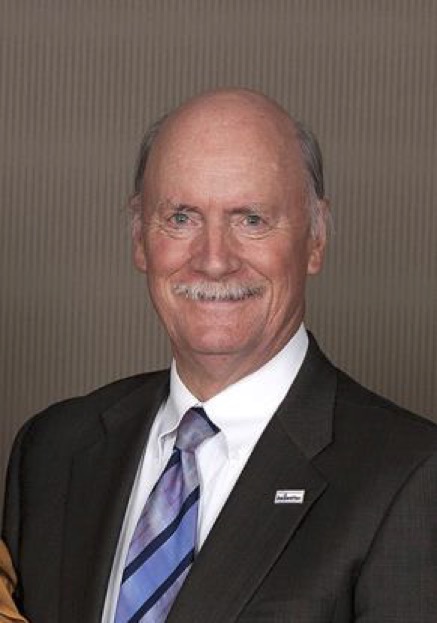
"Always seek pathways to continue your education. These can include continuing graduate education course either at local universities or via Internet based opportunities. In addition, select which journals and publications will provide valuable insights as part of your ongoing education, and identify local organizations where you can garner perspectives on how best to accomplish your assigned responsibilities. Participation in professional organizations is so important that it bears some additional comments.
"Get involved in local and national professional organizations and seek to participate in leadership positions. Start with entry-level selection to support board activities and work your way up as your time and interests allow.
"Involvement in professional community activities provides numerous benefits: A source of knowledge from other individuals in similar positions, references for educational activities to strengthen your skills, future potential advancement opportunities to further your career, etc."
Richard Perrin, Bellwether Class of 2014, CEO, Active Innovations, Annapolis, MD
"Just say yes to an opportunity to gain experience and perspective. As I look back on my career, I accepted countless opportunities to experiment with different roles. And have a perspective from multiple segments of the industry (GPO, Supplier, Provider, Consultant and Technology Company). There simply is no better teacher than experience."
Ed Hisscock, Bellwether Class of 2022, Senior Vice President, Supply Chain, Trinity Health, Livonia, MI